The Sci2U (Science to You) Science Popularization Conference was held at the auditorium of TU’s Jiaojiang Campus on October 30. Experts in science communication, technology professionals, educators, and youth representatives from 22 countries across five continents gathered to discuss the theme “AI for All: Expanding Horizons, Shaping the Future.” The conference focused on how ordinary people can harness AI tools to broaden cognitive boundaries and advance the field of science communication to a new stage.
The event was attended by distinguished guests, including Zhang Xuewei, Vice Chairman of the Zhejiang Provincial Committee of the CPPCC; Zhou Guohui, President of the Zhejiang Association for Science Popularization and Vice Chairman of the 12th Zhejiang Provincial Committee of the CPPCC; Wu Xiaodong, Secretary of the Party Leadership Group and Vice President of the Zhejiang Association for Science and Technology; Zeng Xiaopeng, Member of the Party Leadership Group and Deputy Director of the Zhejiang Provincial Department of Science and Technology; Lu Jin, Member of the Party Leadership Group and Vice President of the Zhejiang Association for Science and Technology; Li Changming, Vice Mayor of Taizhou; Chen Jianxun, Vice Chairman of the Taizhou Municipal Committee of the CPPCC; Zhu Jian, Secretary of the CPC TU Committee; and Li Junmin, Member of the CPC TU Standing Committee, Vice President of TU.
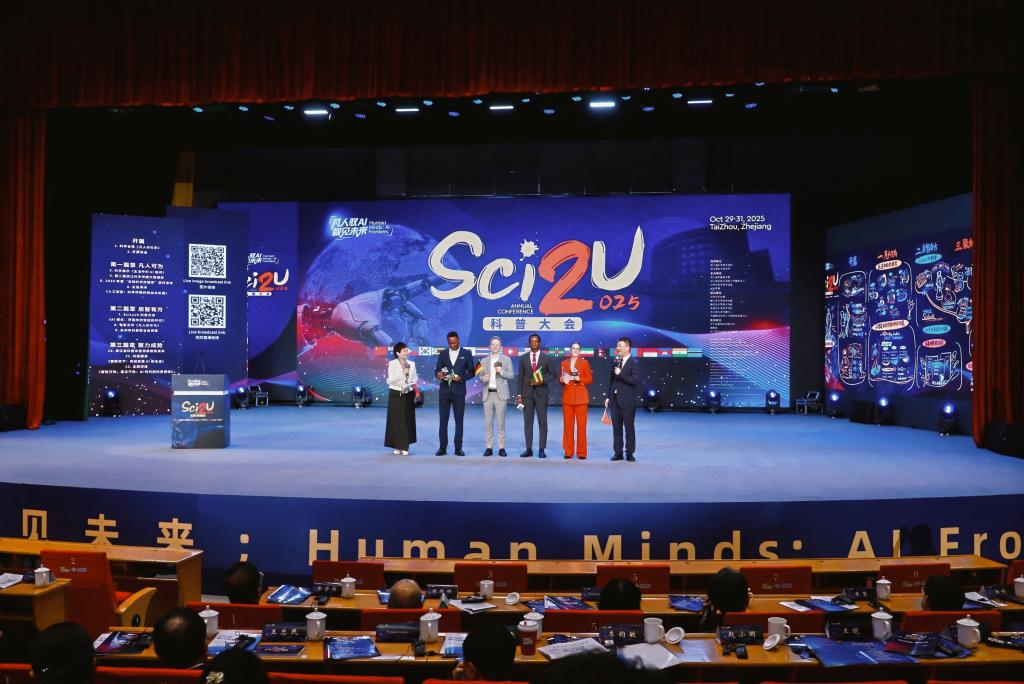
Sci2U Science Popularization Conference
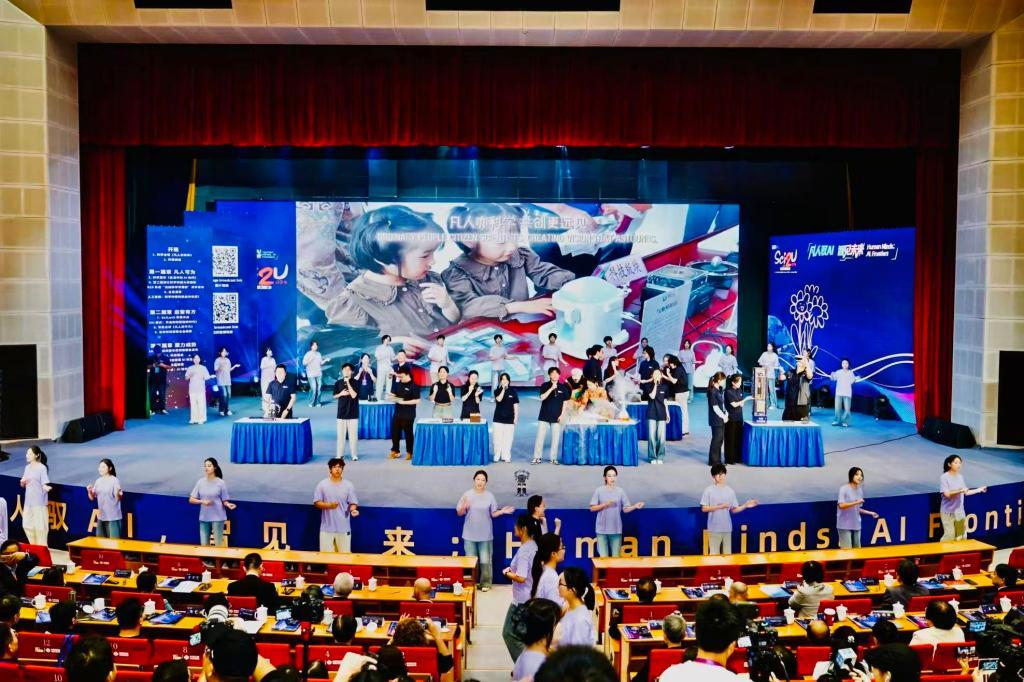
Scene from the conference
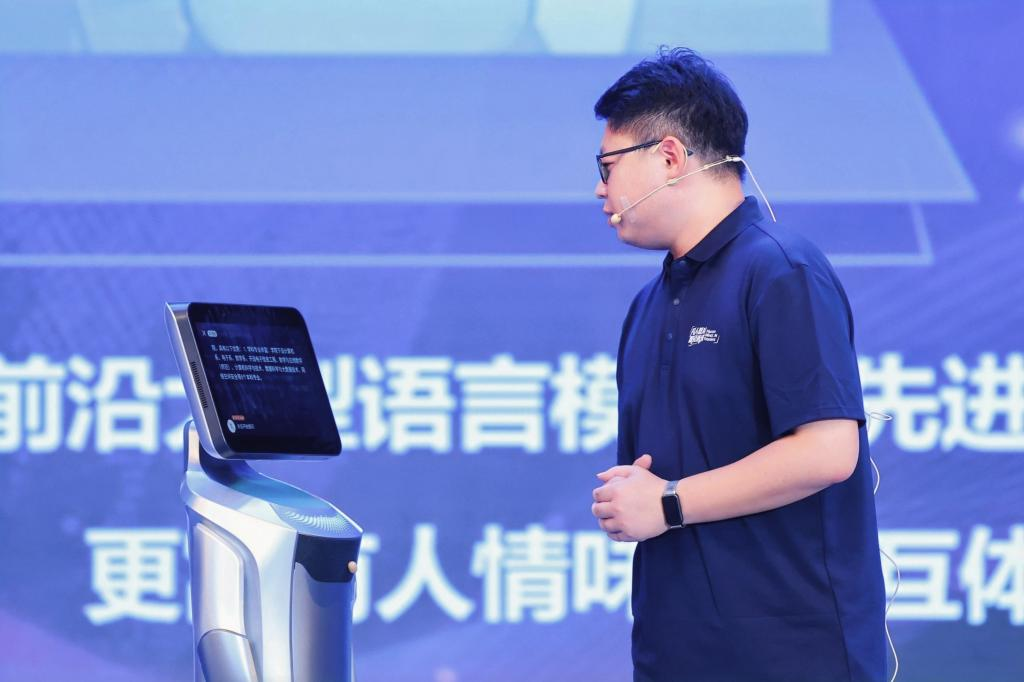
Xu Honghui presenting the reception robot “Tai Xiao Zhi”
At the conference venue, vivid examples of AI applications by TU faculty and students not only demonstrated the inclusiveness of technology, but also illustrated that in the era of intelligence, every ordinary person has the ability and opportunity to harness technology and co-create the future.
Zhang Yihan, a student from the School of Arts and Design, used the domestic Venus, an AI app, to compose the theme song for the conference, “Ordinary People, Co-creating the Future of Science”, which was performed by the student choir. Xu Honghui, a faculty member of the School of Artificial Intelligence, introduced the reception robot “Tai Xiao Zhi”, creating a vivid AI teaching scenario. Wang Yike, a graduate student and team leader of the “Machine Crab Revolution”, shared how to harness AI to transform classroom knowledge into practical innovations for the cultivation of green crabs.
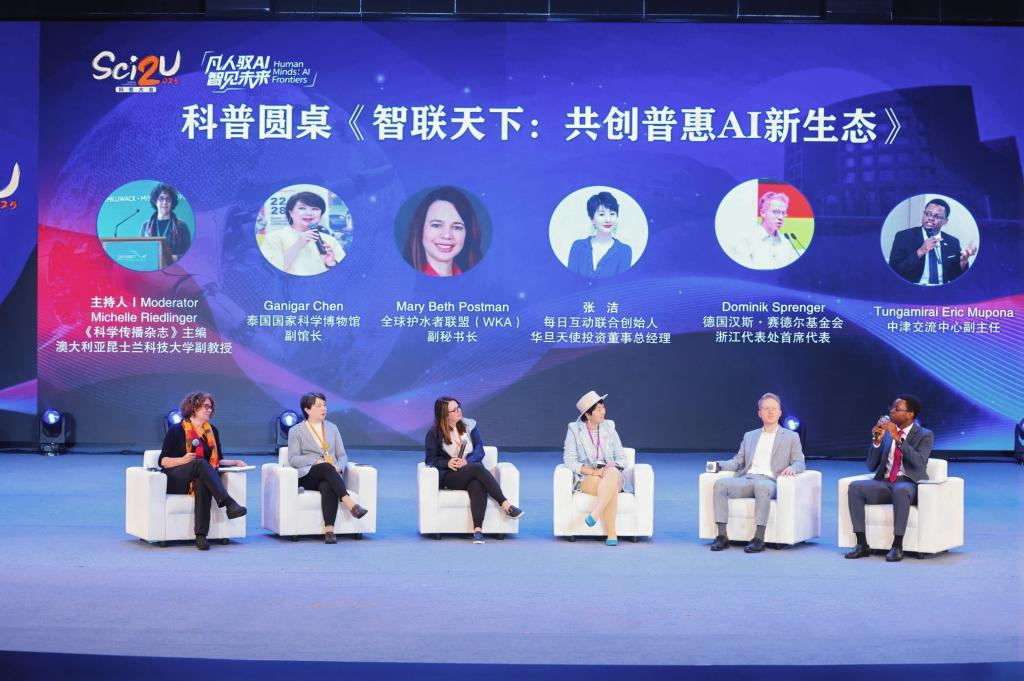
Roundtable Discussion

Release of the Zhejiang Annual Report on Science Popularization

Presentation of the 2025 “Shen Kuo Science Communication Award” Trophy
During the event, the Zhejiang Annual Report on Science Popularization was released, systematically presenting eight key findings from science popularization practices in Zhejiang. At the same time, the trophy for the 2025 “Shen Kuo Science Communication Award” was unveiled.

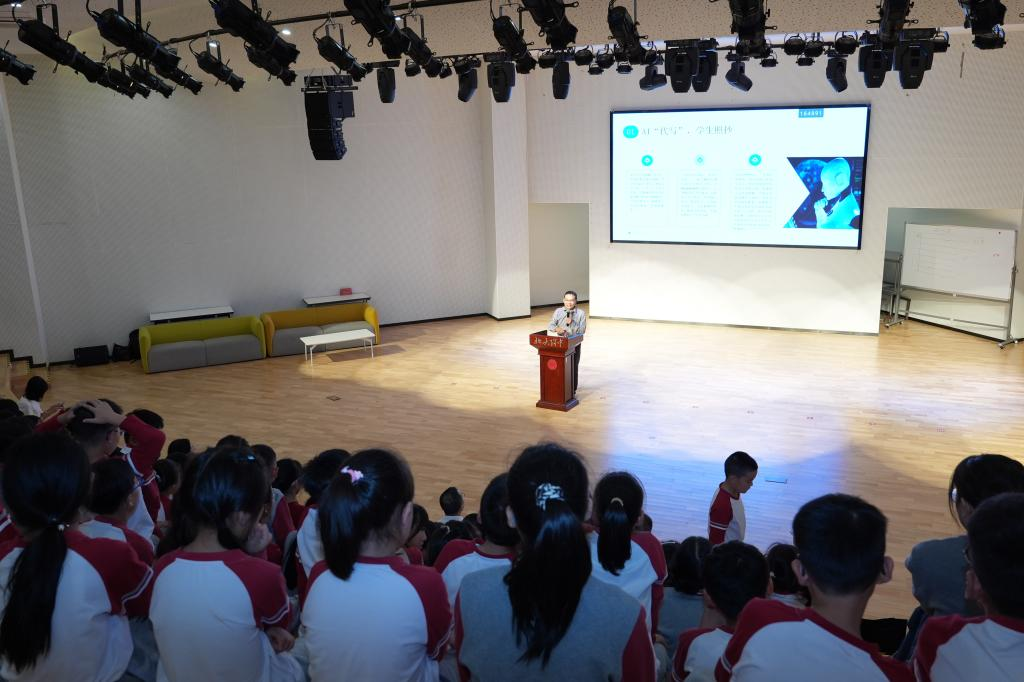
Science Café series
The conference also featured a series of science popularization activities, including the SPARK Nuclear Physics Science Experiments and Science Show Teacher Training, the Yangtze River Delta Science Communication Collaborative Innovation Exchange, the Artificial Intelligence Science Exploration Program, and the Final of the Life and Health Science Popularization Contest. Through these diverse activities, the event promoted interdisciplinary exchange and resource sharing in science communication.
Zhao Xiaoming, former Vice President of TU and Vice President of the Taizhou Association for Science Popularization, and Zhang Shiqing, Dean of the School of Artificial Intelligence, participated in the Science Café series, engaging in in-depth discussions on integrating science communication with real-world issues, as well as the role, application boundaries, and ethical challenges of artificial intelligence in education.

Group photo of conference staff
Looking ahead, TU will regards science popularization as a mission equally important as technological innovation. It will actively promote the transfer of professional knowledge to society, strives to foster the spirit of science and the heritage of revolutionary culture, and seeks to cultivate a social atmosphere that values innovation and the integration of knowledge with practice.